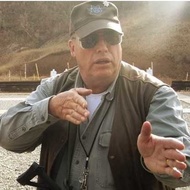4 June 12
“Absolutism, tempered by assassination”
Description of Russian Tzarist governance, by Ernst Von Munster, German Diplomat
Russia’s czars, along with their inheritors, Soviet “premiers,” were fascinated with the idea of precipitous, international stunts. They all dearly loved to surprise everyone, in the process of keeping allies and enemies alike, off-balance. Cost in human lives, of course, meant nothing to them, nor does it today!
Stalin’s otherwise pointless invasion of Finland in late 1939, and Khrushchev’s manufacture of the “Cuban Missile Crisis” in 1962, are prime examples.
Short, fat Ukranian, Nikita Khrushchev, career political commissar (read that, “political hack”), came out on top during the predictable power-struggle that followed in the wake of Stalin’s death in 1953. He was politically astute and experienced, and regarded his American counterpart, John F Kennedy, an inexperienced political amateur, a typical American rich punk… spoiled, shallow, self-centered, and utterly unable to keep his pants zipped!
Khrushchev’s assessment was confirmed by Kennedy’s wretchedly botched invasion of Cuba (Bay of Pigs) in 1961, and even more by the pathetic denial/cover-up that ensued (a hallowed American political tradition!)
So, in the fall of 1962, Khrushchev decided, without fanfare, to install Soviet IRBMs in Cuba, just a few miles south of Miami!
The Cuban Revolution finally succeeded in late 1959, overthrowing the rotting dictatorship of Fulgencio Batista, replacing him with spasmodic, mouthy Communist, Fidel Castro. Cuba had, under Batista, been little more than a big, floating whorehouse, playground for American mobsters and tourists alike. Under Castro, it was rapidly converted to a typical Communist enclave- colorless, drab, cheerless, desperately poverty-stricken, and devoid of any species of economic opportunity. Tourism dried-up instantly, and Castro, like all Communists, had to steal (the polite term is “nationalize”) virtually all private property in order to acquire enough hard cash to prop-up his fragile regime. Castro needed the USSR and was thus not likely to deny Khrushchev anything he wanted.
This time, Kennedy surprised Khrushchev, and most of the rest of the world, by calling his bluff!
And, it was mostly bluff! Despite weary political rhetoric about a mythical “missile gap,” both Kennedy (via superior intelligence) and Khrushchev were fully aware that the USSR’s ageing fleet of wheezing TU4 bombers (Stalin’s blatant copy of the American B29) were so dated and poorly maintained, many of them could not even take off. His shaky “fleet” of only thirty-five SS-7 ICBMs was in even worse shape. Not even “operational” yet, when tested they typically self-incinerated on the launch-pad, in one case immolating hundreds of observers, including a high-ranking military official (the “Nedelin Disaster”).
The Cuban Missile-Crisis was addressed via isolating Cuba, on the advice of Kennedy’s brother, Bobby, and then Secretary of Defense, Robert McNamara. The quarantine was absolute, as shiploads of missiles and associated paraphernalia from the USSR were all turned back. I remember watching Kennedy’s address to the nation on black-and-white television. I also remember my father expressing concern about a nuclear exchange. As it turned out, my father needn’t have worried!
Khrushchev never challenged the blockade, and, less than a month later, backed down. He did send four submarines (conventional diesel/electric), but they never reached blockade borders. They were discovered by American navel aircraft far out in the Atlantic. One, low on battery power, was forced surface. Afterward, they all turned back and returned to the USSR. Years later, it was revealed that the Soviet submarines in question carried nuclear torpedoes. This was entirely unknown to Kennedy and the Pentagon. There is some question as to whether they would have actually functioned if launched. In any event, they never were.
Khrushchev clung to power for less than two more years. He could not live-down his blunder. After “retiring,” he permanently faded from sight, never to rear his ugly head again.
He died in obscurity in 1971, at the age of 77. Even today, he is not considered a national hero, in Russia, nor anywhere else. As far as his countrymen are concerned, he blew it. And, among Russians, there is scant forgiveness, as Von Munster observed over a century ago!
Kennedy was assassinated in Dallas, TX in 1963. I remember hearing the news when I was a college freshman, away from home for the first time.
Next came Vietnam, and, this time, I participated personally!
/John


